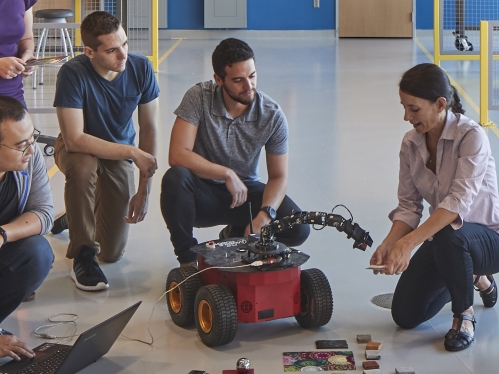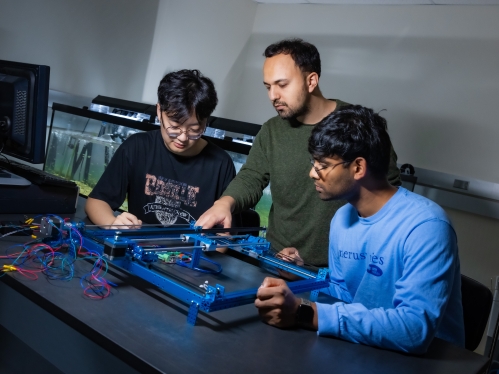Doctoral Degree
Degree Highlights
The research-driven ECE doctoral program focuses on original contributions in 10 specialized concentrations:
- Communications engineering
- Networking
- Signal and information processing
- Computations sensing
- Machine learning
- Software engineering
- Solid state electronics
- Systems and controls
- Computer engineering
- Cybersecurity
The program prepares graduates for leadership positions in academia and industry research laboratories.

Applied Learning
The electrical and computer engineering faculty are actively engaged in research in areas ranging from wireless systems to future Internet design, sensor networks, signal processing, control theory, low-power electronics, materials, hardware and software engineering, computer graphics and vision, robotics, and virtual reality technologies. Students have access to cutting-edge research laboratories, such as the Wireless Information Network Laboratory (WINLAB), and the Nanofabrication Core Facility (NCF).
The graduate faculty guide students through the research process, from problem formulation to publication in top-tier journals and conferences to filing patent applications and technology transfer. Many Ph.D. students pursue careers in academia and industrial research laboratories.
Doctoral Degree Requirements
- 72 credits – including at least 36 credits in graduate coursework, 24 credits of research leading to the Ph.D. dissertation, and an additional 12 credits from either coursework or research
- Enrollment in four semesters of Colloquium in Electrical and Computer Engineering
- Qualifying exam
- Dissertation proposal and defense



Your Application